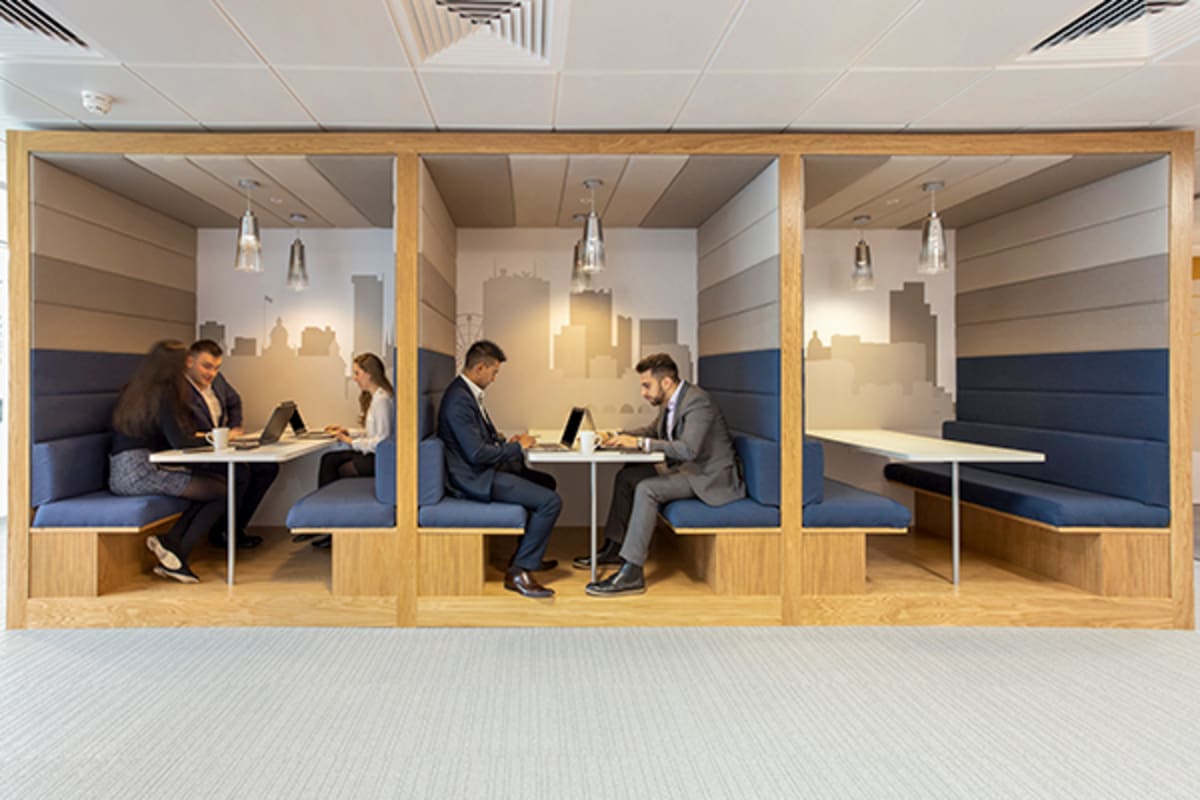The rise of flexible workspace solutions is fast becoming one of the principal disruptors in the modern world, with cost-savings and the ability to attract top staff changing the way companies do business
The word ‘disruption’ has become de rigueur in business circles in recent years.
From startups breaking into industries previously dominated by major global players, to the rapid advancement of technology and evolving working practices, the business world continues to be in a state of flux.
But while many may associate disruption with technological advancement, it’s actually how we work that is becoming one of the central drivers of this revolution, with flexible working due to eclipse artificial intelligence as a key disruptor in the 2020s.
The era when employees were happy to work in packed offices, 9-6, day-after-day is coming to an end. Now more than ever, the modern employee prizes flexibility.
A report by IWG found that every single week, 70% of employees are working somewhere other than the office for at least one day, more than half (53%) work remotely for half the week or more, whilst one in ten (11%) work outside of their company’s main office five times a week.
Further research by IWG also revealed that this type of flexible working will contribute US$10.04trn to the economies of 16 leading business nations by 2030, more than the current GDP of Japan and Germany combined.
One country seeing a boom in this type of flexible working is New Zealand, where it is predicted to add $18.1bn to the Antipodean economy by 2030.
“We have seen a surge of demand in the last 18 months, both in the SME market and the corporate occupiers,” says Pierre Ferrandon, IWG country manager for New Zealand.
IWG’s report found growth in demand in New Zealand is surging rapidly, with 40% of office tenants expecting to add up to 83,000 jobs in industries ranging from financial services to communications and public administration.
Ferrandon credits this rise to increasing awareness of the benefits of flexible workspace and the potential cost savings. Indeed, a comparison by IWG found that a company in New Zealand with 100 staff using a traditional rental model could spend between NZ$786,000 to NZ$1,173,000 per annum, while a flexible model could only cost more in the region of NZ$561,000 to NZ$1,054,000, a potential real-estate cost saving of between 10% and 29%.
As well as the cost of rent with the traditional model of doing things, there are also unpredictable ‘one-off’ expenses.
“Another factor driving demand is the cost of fit out, which has risen dramatically over the last few years, making depreciation a much higher cost to consider and driving occupiers to consider ready fitted solutions versus building their own fit out,” says Ferrandon.
As well as rents, one-off costs, insurance etc, there is also the potential impact of the global accounting standard IFRS 16, which means that, for some lease agreements at least, office rental costs have gone from being classed as expenses on the balance sheet to assets. This could have a potential impact on a range of areas for a business, including its ability to borrow.
But with workspace as a service, companies can acquire shorter and less costly leases, which can potentially still be classed as expenses and therefore kept off the balance sheet.
And it’s not just potentially better financials that make this type of working appealing, but the basic practicalities of a company being able to rent only the space and facilities it needs. This is particularly important in New Zealand, where 90% of new businesses employ less than ten people.
The desire to work flexibly is something the modern workforce prizes, with companies that can offer this being in pole position to attract the best staff as part of what Ferrandon calls the “war for talent” – where companies compete for skilled and talented workers.
“This is driving employers to look for opportunities to allow their employees to work remotely, fuelling the demand for satellite offices, which flexible workspaces support the best,” he says.
“This war for talent is also driving high expectations from employees from a workspace perspective and they are demanding spaces that foster creativity, collaboration and community, which our co-working brands Bizdojo and Spaces are well positioned to offer.”
IWG currently has more than 3,000 locations in New Zealand, from fully serviced offices, meeting rooms and business lounges to co-working spaces and virtual offices that can be rented by the day, week or year.
“With our solutions, we allow these companies to access some of the best buildings in town without the capital outlay or the enormous liabilities arising from long-term leases,” Ferrandon adds.
The IWG network in New Zealand continues to spread in order to service this booming sector. Over the last four years, the company has extended its network from two cities and five locations, to four cities – Auckland, Christchurch, Wellington and Dunedin – with 17 locations.
The firm also recently launched its franchise programme with the aim of partnering with franchise operators and property owners, with the intention of reaching another 60 locations in 15 cities over the next five years across multiple IWG brands such as Regus, Spaces and Bizdojo.
“We have partnered with organisations such as Southern Cross, Aecom, Turner & Townsend and Service Now to help them achieve their workspace goals across New Zealand,” adds Ferrandon. “We are engaging further and further with companies looking to improve their property portfolio efficiency while delivering a world class workspace experience for their employees.”






